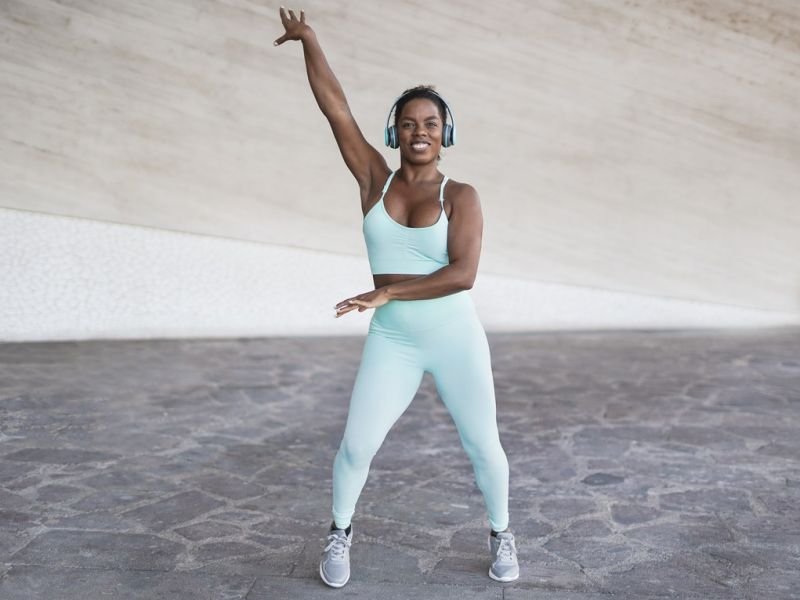African Dance: Exploring Traditional and Contemporary Styles

African dance is a rich and diverse art form that embodies the vibrant cultures and traditions of the African continent. From traditional dances rooted in ancient rituals and ceremonies to contemporary styles influenced by global trends, African dance offers a captivating journey into the heart and soul of African culture.
Traditional African dance styles vary significantly across different regions and ethnic groups. These dances often serve important social, spiritual, and ceremonial purposes within communities. They are characterized by intricate body movements, rhythmic footwork, and expressive gestures that tell stories and convey emotions.
Contemporary African dance, on the other hand, reflects the fusion of traditional African dance with modern dance techniques and influences from other dance styles around the world. It embraces innovation, individual expression, and creative freedom, while still honoring the cultural roots and essence of African dance.
African Dance Classes: Embracing African Culture through Movement
African dance classes provide a unique opportunity for individuals to delve into the world of African dance and immerse themselves in the rich cultural heritage it represents. These classes offer guidance from experienced instructors who not only teach the movements and techniques but also provide valuable insights into the historical and cultural contexts of the dances.
By learning African dance, participants gain a deeper understanding of African traditions, values, and beliefs. They develop a sense of appreciation for the diversity and beauty of African culture, as well as the invaluable contributions of African people to the world of performing arts.
African Dance Workshops: Enhancing Skills and Cultural Exchange
African dance workshops bring together passionate dancers, both novices and experienced, to learn from skilled instructors and share their love for African dance. These workshops offer intensive training sessions that focus on improving technique, musicality, and performance skills.
Not only do participants refine their dance abilities, but they also get the opportunity to connect with other dancers from different backgrounds and cultures. These workshops foster a sense of community and allow for the exchange of ideas, experiences, and perspectives, enriching the overall dance experience.
Celebrating African Dance Festivals: Uniting Dancers from Around the Globe
African dance festivals serve as exciting platforms for dancers from various countries to come together, showcase their talents, and celebrate their shared passion for African dance. These festivals feature performances by renowned dance companies and individual artists, highlighting the diversity and creativity within the African dance community.
During these festivals, dancers have the opportunity to attend masterclasses, take part in collaborative projects, and engage in cultural dialogues. The lively atmosphere and the spirit of camaraderie fostered during these events create a sense of unity and solidarity among dancers, transcending borders and barriers.
The Rhythm of African Dance Music: Creating Atmosphere and Expressing Emotions
African dance music is an integral component of African dance, as it sets the tone, dictates the rhythm, and evokes the emotions that drive the movements. Traditional African music is characterized by complex polyrhythms, infectious beats, and captivating melodies.
Contemporary African dance music incorporates elements of various genres, such as afrobeat, highlife, soukous, and hip-hop. It adds a contemporary flavor to the traditional dances, making them more accessible to a wider audience while maintaining their authenticity and cultural significance.
The Significance of African Dance Costumes: A Visual Celebration of Culture
African dance costumes play a crucial role in expressing cultural identities and enhancing the visual experience of the performance. These costumes are often vibrant, colorful, and intricately designed, incorporating traditional fabrics, patterns, and accessories.
Each ethnic group has its distinct costume styles that reflect their customs, beliefs, and histories. The costumes, with their unique aesthetics and symbolism, contribute to the storytelling aspect of African dance, amplifying the messages conveyed through movement.
Furthermore, African dance costumes provide opportunities for artistic expression and creativity. Dancers and costume designers collaborate to create stunning ensembles that captivate the audience and serve as a visual testament to the richness and diversity of African cultures.
Experience the beauty and power of African dance by joining Dance Competitions – competes.tv’s African Dance Classes, participating in their African Dance Workshops, and attending African Dance Festivals. Discover the joy of celebrating diversity through movement, music, and costumes.
Important Facts and Statistics about African Dance
- African dance encompasses a wide variety of styles, each tied to specific regions and ethnic groups.
- Modern African dance styles are deeply rooted in culture and tradition.
- African dances often serve specific purposes within communities, such as rites of passage, ancestral worship, and social celebrations.
- Dances in Africa are traditionally gender-specific, with men and women rarely performing the same style of dance together.
- African dance has influenced many modern dance styles around the world.
Explore more about African Dance and its cultural significance at:
What are the traditional styles of African dance?
How has African dance influenced modern dance styles?
What is the significance of African dance costumes?
Contact Dance Competitions – competes.tv at 650-437-4741 to learn more about their African Dance Classes and other dance-related opportunities.